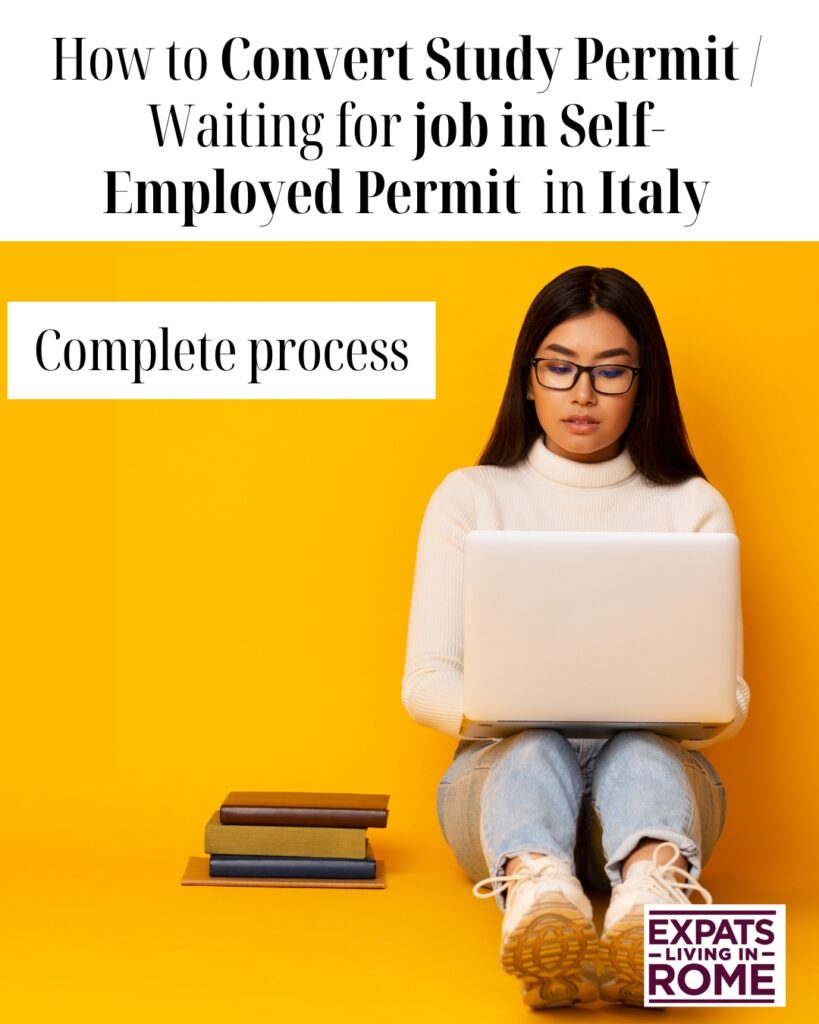Buying Property – Mortgage Guidelines for Foreigners
by Adriana ruiz
A SIMPLE GUIDE FOR AN EASY TRANSACTION
The mortgage loan for foreigners interested in buying a property in Italy is a medium- to long-term commitment, typically lasting from 5 to 25 years. The customer typically receives the entire sum in one lump sum and repays it over time in installments of constant or variable amounts. This type of loan is commonly used to buy, build, or renovate properties, especially houses. The term ‘mortgage’ is used because the payment of installments is secured by a mortgage on the property. Financial institutions, including banks and other intermediaries, can grant mortgages. Some banks even provide tailor-made mortgage options for foreigners residing and working in Italy. The loan amount varies based on the applicant’s economic needs and repayment capabilities. It’s important to note that mortgages for foreigners can only be requested if the property is located within Italian territory. We can collaborate to find the best solutions for you, optimizing your chances of obtaining a mortgage in Italy for buying or renovating a property.
HOW DO I CHOOSE A MORTGAGE?
Can I get a mortgage in Italy?
Obtaining a mortgage for foreigners is not as challenging as one might think, but it’s not entirely straightforward either. Similar to Italians, foreigners must provide guarantees of solvency and meet specific income requirements. The process is generally the same, with a few minor differences. Possession of residence in Italy is often valued by most banks, considering it an additional guarantee to income and personal guarantees.
How much can I ask?
In general, the intermediary grants an amount not exceeding 60% of the property’s value, determined based on an expert opinion. Some intermediaries may go beyond 60%, but this often requires more collateral and less favorable conditions. There is no maximum figure for applying for a mortgage; it depends on the intermediary’s policies. Beyond EUR 2 million, considering other financing solutions is advisable, and our company can assist and advise on alternative solutions.
What installment can I afford?
Before applying for a mortgage, it is advisable to carefully assess your income, especially in perspective, and determine your monthly availability after deducting ordinary expenses. The installment should not exceed one-third of your disposable income to cover current expenses, unforeseen costs, and potential income reductions due to illness, accidents, or redundancy.
How much does the mortgage cost me?
The primary cost is interest, which is the remuneration for the granted loan and depends on the mortgage duration. Additional costs, detailed in the Information Sheet available from the intermediary and its website, should be considered. When planning expenses, account for notary fees and taxes payable once the home purchase contract is concluded.
What duration suits me?
The loan duration, agreed upon between the customer and the broker, is a crucial element determining the installment amount. The installment comprises both capital and interest. With the same loan amount and interest rate, shorter durations result in higher installments but lower interest, while longer durations yield higher interest but lower installments.
Who can be financed?
Individuals and companies residing almost anywhere globally can be financed.
Which customers with foreign currencies can be financed?
Commonly financed currencies include EUR, GBP, USD, CAD, AUD, SGD, HKD, DKK, NOK, SEK, CHF, JPY; other currencies can also be estimated.
What can be financed?
Financing is possible for purchasing a first home, holiday home, and income-generating real estate with all necessary permits. Property renovations can also be financed, up to a maximum of 50% of the final property value.
Up to what age can I apply for a mortgage and for how many years?
The mortgage must be completed by the age of 75 for the applicant, and the maximum duration is 25 years.
How many types of mortgage amortization are there?
There are four main amortization plans: French, German, Italian, and American (Anglo-Saxon). The most widely used in Italy is the French plan, where installments remain constant, each comprising a different share of capital and interest.
TYPES OF MORTGAGE IN ITALY
Fixed-rate mortgage
The interest rate remains the one fixed by the contract for the entire duration of the mortgage. The disadvantage is not being able to take advantage of any reductions in market rates that may occur over time. The fixed rate is recommended for those who fear that market rates may rise and from the moment the contract is signed want to be certain of the amounts of the individual instalments and the total amount of the debt to be repaid. In return for this advantage, the intermediary often applies more onerous conditions than for a variable rate mortgage.
Variable-rate mortgage
The interest rate can vary at fixed intervals from the starting rate by following the fluctuations of a reference parameter, usually a market or monetary policy rate. The main risk is an unsustainable increase in the amount of the instalments. For the same duration, variable rates are initially lower than fixed rates, but can increase over time, thus causing the amount of the instalments to rise, even substantially. The variable rate is recommended for those who want a rate that is always in line with market trends, or who can bear any increase in the amount of instalments.
Mixed-rate mortgage
The interest rate can change from fixed to variable (or vice versa) at fixed intervals and/or under certain conditions specified in the contract. Advantages and disadvantages are alternately those of the fixed or variable rate.
Two-rate mortgage
The mortgage is divided into two parts: one with the fixed rate, one with the variable rate. The dual rate is recommended for those who prefer an intermediate solution between the fixed and variable rate, balancing the advantages and disadvantages of each.
Soft-rate mortgage
In some cases public authorities may contribute to the payment of interest on a mortgage.
HOW MUCH DOES A MORTGAGE COST?
Taxes and tax benefits
Taxes and tax benefits If the mortgage is granted by a bank, the customer pays a tax of 2% of the total amount, or 0.25% in the case of a ‘first home’ purchase. The tax is withheld directly by the bank, so the amount the customer receives is less than the amount granted. If the loan is granted by a non-banking company, e.g. a finance company, the conditions are less favourable. There may also be other taxes related to the registration of the mortgage or other obligations. The interest paid on a mortgage loan for the purchase, construction or renovation of the main dwelling is deductible from Personal Income Tax. The amount and conditions for the deduction are set by law.
Other costs
In addition to interest and taxes, consider:
• The fee of the financial advisor who will take care of the entire bureaucratic process and assist you from start to finish. Our cost varies from 3% to 5% of the sum disbursed by the intermediary with a minimum of 2,500.00 euros
• The intermediary’s fee for the investigation costs, which may consist of either a fixed amount or a percentage calculated on the amount of the loan
• The appraisal fees, which may be charged for the valuation of the property to be mortgaged
• The notary fees for the mortgage contract and the registration of the mortgage in the land registers
• The cost of the insurance premium to cover damage to the property and possibly risks related to events in the client’s life that could prevent him from repaying the loan
If the intermediary asks to take out life insurance, they must submit at least two quotes from two different insurance companies to the client.
It is important to pay attention to the cost of the policy: the one proposed by the intermediary may be more expensive than others offered on the market. If one decides on a policy other than those offered by the intermediary, the latter cannot change the conditions of its mortgage offer. Interest on arrears, if you pay the instalment late, generally entails a surcharge of between 1% and 4% over the rate agreed for the loan and runs from the day of the due date until the instalment is paid. The annual file management fee, instalment collection fees, costs for sending communications (the full list of costs is in the Information Sheet).
AMORTIZATION PLAN
The amortization schedule is the debt repayment plan. It is important, for mortgages that are or may remain at a fixed rate for the duration of the contract, to ask the intermediary to examine it. The plan establishes the amount, the date by which all the debt must be paid, the frequency of the individual instalments (month, quarter, half-year), the criteria for determining the amount of each instalment, and the remaining debt. The instalment consists of two elements: Capital portion, i.e. the amount of the outstanding loan Interest portion, i.e. the interest accrued. There are different loan repayment mechanisms. In Italy, the most common repayment plan is the so-called ‘French’ method: the instalment is composed of an increasing principal portion and a decreasing interest portion. In the beginning, mainly interest is paid; as the capital is repaid, the amount of interest decreases and the capital share increases. The change in the composition of the instalment in principal and interest share can affect tax deductions, the amount of which can therefore change from year to year. In particular, the deductible portion is the interest portion, which decreases over time.
HOW TO DECIDE WHICH MORTGAGE TO CHOOSE?
Compare offers from several intermediaries
The rates and conditions offered by different intermediaries can vary, even by a lot. Today, almost all intermediaries have a website on which they publish the Comparison Sheet and the Information Sheet for each mortgage: it is therefore possible to compare the offers with all the necessary calm. There are also search engines on the internet that offer guides and suggest the most suitable mortgages for everyone’s needs. Of course, it is always possible to request the information documents directly from the intermediary. An important element to assess and compare is the APR (Annual Percentage Rate), which all intermediaries are required by law to publish on their information sheets. The APR is a summary of the overall cost of the loan, which includes the interest rate (and therefore also the spread applied by the intermediary) and the other expense items (e.g. application and instalment collection costs).
Select intermediaries for customized proposals
The information documents indicate the conditions according to a standard scheme. Depending on one’s personal situation, the customer may obtain more favourable conditions. When examining proposals, pay close attention to:
• Spread
• APR (in Italian TAEG)
• Amortisation plan
• All items of expenditure
• Time for granting (must be compatible with the time needed to purchase the property)
• Tax savings, which may vary depending on the composition of the instalments (principal and interest share) set out in the repayment plan.
WHAT TO KNOW BEFORE SIGNING A MORTGAGE
Provide information and documents for the preliminary investigation
With the appraisal, the intermediary verifies the customer’s income, assets and collateral to assess his repayment capacity over time. Each intermediary has its own procedures, but in general the documents to be submitted concern:
Presenting guarantees
The first guarantee that the broker requires is the mortgage, which gives him the right to have the property sold if the client fails to repay the loan. To determine the value of the property, and thus of the collateral, the property is first subjected to an appraisal. The client may live in the mortgaged property and may rent it out. Selling it, on the other hand, may be more complicated precisely because of the lien on it. The lender may require other collateral in addition to the mortgage, for example when the client has a low income compared to the instalments, does not have a stable job or is applying for a mortgage for more than 80% of the value of the property. Among the most common guarantees is the surety bond, issued by a party other than the customer applying for the mortgage. With the surety, the guarantor is liable for the repayment of the entire loan with all his assets.
The main steps:
• Application and submission of documents
• Assessment of income
• Technical expertise and notary’s report
• Final decision on granting of financing
• Signing of contract
• Disbursement of the loan
A MAJOR FINANCIAL COMMITMENT
Do not get into debt beyond your means
A mortgage is a major financial commitment to be borne over time, both for an individual and for a family. Already at the time of application, it is essential to assess whether one’s income is sufficient to pay the instalments. During the mortgage period, unforeseen events may occur that require new outgoings (medical, household, children’s expenses) or reduce income (loss of job, redundancy, illness). Before any application for a mortgage or loan, you should always consider whether you are not getting into too much debt.
Pay installments on time
If you do not pay your instalments on time, the intermediary charges interest on arrears, which is added to the amount owed. In the most serious cases, the intermediary can terminate the contract. If the intermediary is a bank, the bank may dissolve the contract for:
• Non-payment of even one instalment
• Delay of more than 180 days from the due date in paying even a single instalment
• Delay (between 30 and 180 days from the due date) in the payment of instalments more than seven times
If the bank terminates the contract, the customer must repay the outstanding debt immediately. If they cannot repay the debt, the intermediary may have the mortgaged property attached and sold at auction. If there is a guarantor, they too are obliged to repay what is owed. The intermediary may also report the untrustworthy customer to the Central Risks Bureau, a report that jeopardises the possibility of obtaining financing in the future.
If the instalment over time proves to be too high, the customer should seek a solution with the intermediary immediately
If the customer cannot always pay their mortgage instalments on time, it is advisable for them to contact the intermediary promptly to seek a solution together. Firstly, it is possible to renegotiate, for example, the type of rate, spread and duration, without the notary’s intervention because the original mortgage remains valid.
Another possibility is the temporary suspension of payments, to overcome the moment of difficulty.
Alternatively, it is possible at any time to transfer the loan to another intermediary, without any charge or penalty. This is known as portability, which allows the mortgage to be repaid using the same sum granted by a new intermediary and keeping the original mortgage. The sum will be repaid on the terms agreed with the new intermediary. The customer has no right to obtain a new loan. However, if this is granted to them, the old intermediary cannot prevent or hinder the transfer of the mortgage. The customer does not have to bear any costs, not even indirect costs (e.g. commissions, fees, charges or penalties), either for the termination of the loan with the old intermediary or for the granting of the new loan.
For further information, contact us at [email protected]
Find and Buy Your Ideal Property in Italy with Our Professional Services
Learn Italian and open up new possibilities for your career and personal growth
Prepare for the CILS B1 Citizenship exam to obtain citizenship by marriage, residence or study or work in Italy.
Switching to a self-employment permit from a study or job-seeking one
Understanding the Tessera Sanitaria: Your Italian Health Insurance Card
Non-Married Partners: How to Obtain a Residence Permit in Italy as De Facto Cohabitants
How to get tax identification number for foreign citizens (Codice Fiscale)
How to register in Italy as an EU citizen
Mastering Public Transport in Italy
The Advantages of Dual Citizenship with an Italian Passport: Unlocking Boundless Opportunities
What you need to know about Visas and Permits to stay in Italy
Red flags to identify a scam when renting in Italy





Leave a Comment:
You must be logged in to post a comment.